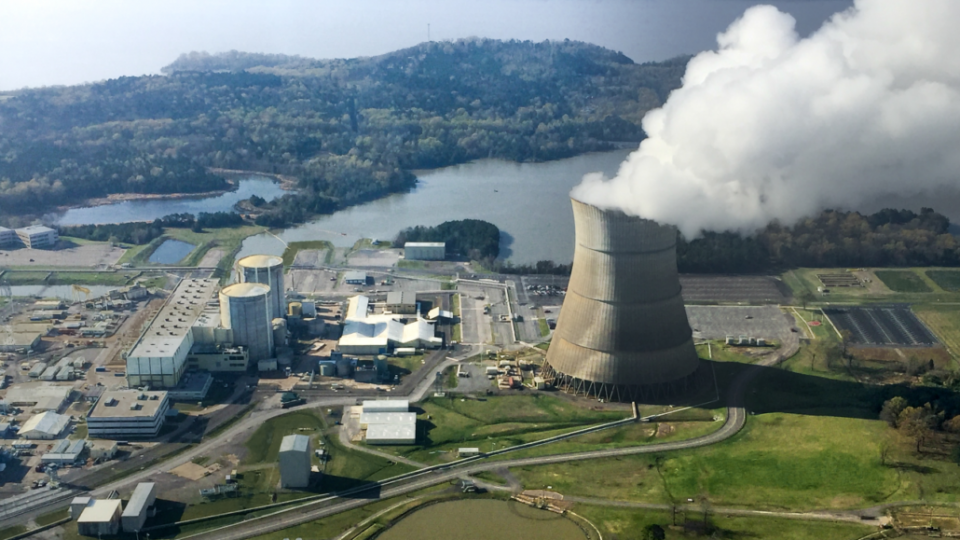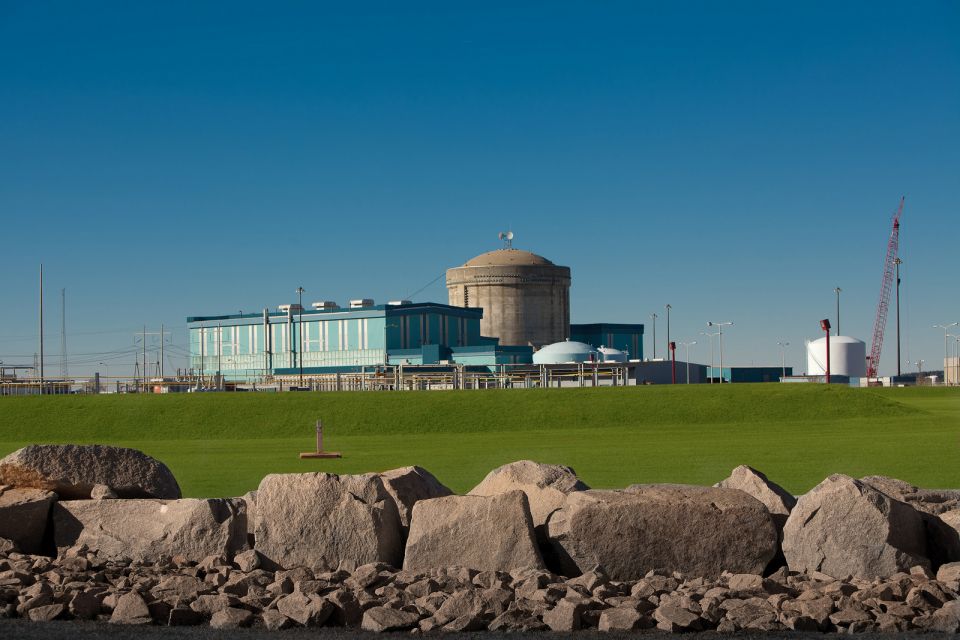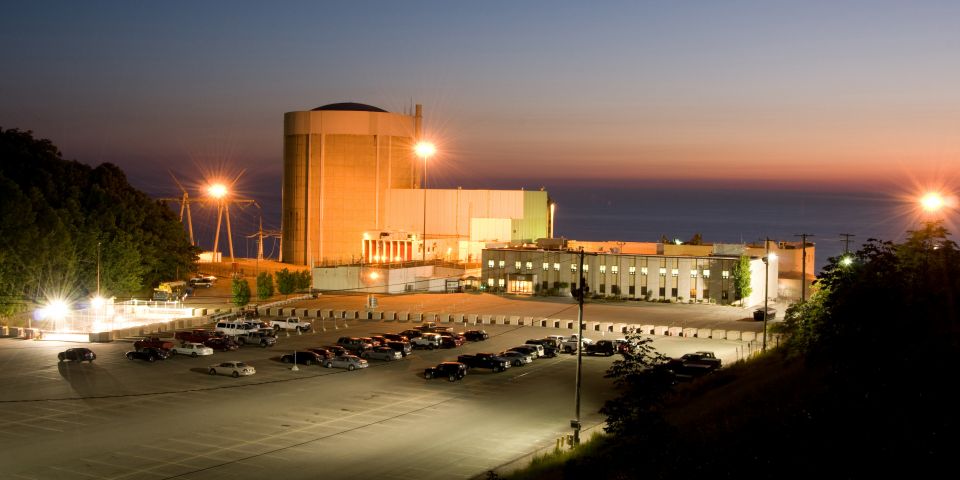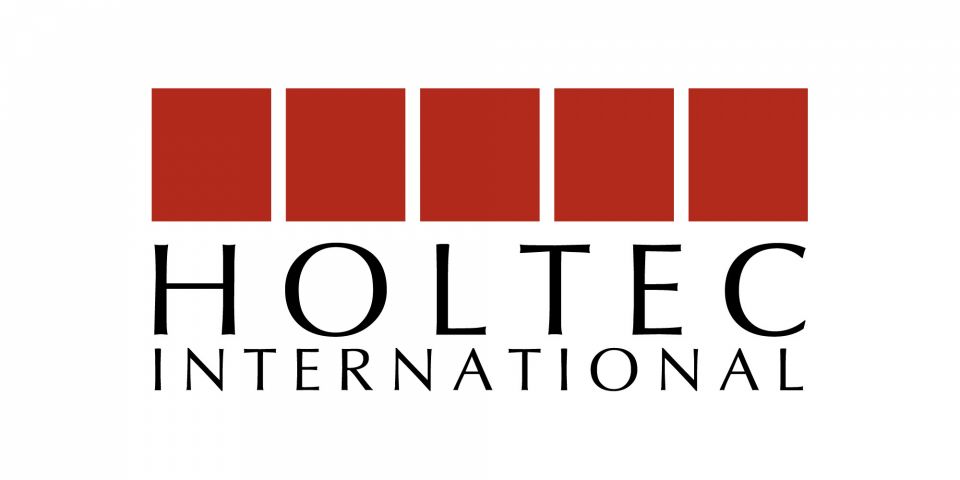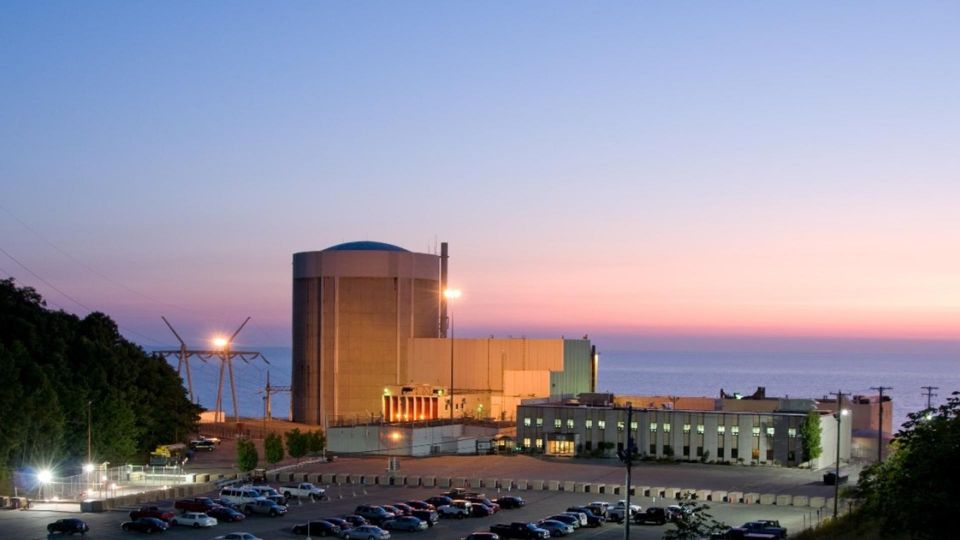Save Vermont Yankee. If not you, who? If not now, when?
I told some friends the other day that I often feel like a time traveler from the Age of Reason who sees questionable behavior and is forced by training to ask, "Why?"
Although I have already written a couple of articles on this particular topic, it is time for one more post intended to provoke thoughts and discussions aimed at finding a way to prevent an action that we all know is wrong and shortsighted. I'm writing about the pending closure of the Vermont Yankee nuclear power plant, a 650-MWe nuclear power plant located on the Vermont side of the Vermont/New Hampshire border (also known as the Connecticut River) and only a dozen or so miles from the Massachusetts border.
It is a safe, reliable, zero-emission nuclear power plant with a low, predictable fuel cost and a moderately generous, but predictable payroll. It has recently been extensively refurbished as part of a power uprate program; it has an operating license that is good until 2032 and may be able to be extended; and it has a brand new emergency diesel engine.
It is in a region of the United States where the reliable generating capacity is suddenly so tight that the total auction price for capacity has recently tripled from $1 billion in 2013 to more than $3 billion in the most recent auction.
Aside: It's probably worth mentioning that if Vermont Yankee had bid into that auction, the prices would have settled at a far lower level. That is the nature of the response in an under damped system that is in a delicate balance; wild swings can result from the imposition of minor disturbances. It is not at all surprising that companies with generating facilities participating in the New England capacity auction did not approach Entergy about purchasing Vermont Yankee. There is no shock in finding out that 100 percent of the companies approached as logical candidates with complimentary assets politely declined to make any bids after a due diligence presentation. End Aside.
Vermont Yankee is also in a region of the country with a growing dependence on natural gas for both electricity and heat, but a pipeline network that was not sized to carry enough gas for both types of customers.
Here is a recent quote from Leo Denault, Entergy Corporation chief executive officer and chairman, about the power situation in New England:
"If we continue to see Northeast power markets drive what should be economical units to retire prematurely and not fairly reward generators for the attributes they provide-including fuel supply diversity and reliability, as well as environmental benefits-what was a volatile outlier this winter... could become a recurring situation." Denault also noted the harsh winter's ability to expose pipeline deficiencies that constrained certain resources during periods of high demand: "There is simply not enough natural gas pipeline capacity in New England to serve both heating demand and natural gas-fired power plants during extreme cold."
(SNL Energy's Power Daily - April 25, 2014)
Any industrial customers that are left in the region are left out in the cold, and it can get quite cold in New England, especially during a polar vortex.
The state of Vermont bears a large portion of the responsibility for the pending closure; in fact, there are politicians in the state who have bragged about their success in getting rid of a reliable, low cost, clean energy source (of course, they may slant their claims a bit).
Peter Shumlin-both as senator and then as governor-and his allies made life uncomfortable for Entergy during the 12 years that the company owned the facility. Their efforts added substantial costs to the total operations and maintenance costs and they demanded several different kinds of tribute in return for "allowing" the plant to keep operating.
It is understandable that there are many people on the plant staff who are sad that they are losing their jobs, but conflicted about leaving a state that did not value their contributions anyway.
Unfortunately, nuclear professionals did not do all they could to help the valiant efforts of Meredith and George Angwin, Howard Shaffer, Robert Hargraves, and others who worked hard to counter the FUD (fear, uncertainty and doubt) spread by the professional fear mongers like Arnie Gundersen, or the actions of professional nuclear energy industry critics like Mark Cooper and Peter Bradford.
So far, the antinuclear forces seem to have won the day.
Entergy has announced that no one wanted the plant. I will take them at their word, but I have to ask what kind of effort they invested to market the facility? It is almost like getting up one day and finding out that your neighbor, who owns a house that you always liked and thought would be a great place for your son or daughter to use to raise your grandchildren, had decided to tear down the house to leave a vacant lawn because that was easier than paying the upkeep after they retired to Florida.
He tells you that "everyone" knew the place was for sale and also knew that he planned to tear it down if no one came up with a reasonable offer. Somehow, you never noticed the little "For Sale" sign tucked in the bottom right hand corner of a front window. Perhaps it was because there was an overgrown plant out in front covering the sign.
At any rate, my little allegory would have a happy ending if you just happened to wake up and get your paper early enough on the day that the dumpsters were being delivered to stop your neighbor and halt the destruction before it started.
In the case of Vermont Yankee, there are potentially interested investors that never knew that the plant was for sale. There are also plenty of technically qualified people who could be formed into a technically qualified management team in short order to own and operate a nuclear plant that has already done all of the hard work of establishing procedures, schedules, required programs like QA and RP, and all of the host of other things that would need to be done for any new facility.
The reactions I have received from some very bright people when I describe the current plan can be summarized by the quote I received-second hand-from a correspondent who knows Nathan Myhrvold, the CEO of Intellectual Ventures and a partner with Bill Gates in Terrapower. My correspondent asked Myhrvold if he had any ideas about saving the plant. This is the response he received:
Not really.... It is an insane decision to shut it, but that is what nuclear has become...
Perhaps I am just a little odd, but I just don't see how people can stand idly by and watch while a small group of people take actions that will harm a much larger group of people over a long time to come. If the action is, indeed, insane, the question is why should we allow it to happen?
Who is going to point out the insanity? When?
Back to the headline, which was the motto over one of the doorways at my alma mater.
"If not you, who? If not now, when?"
I guess that-for now-it's going to be me and a few diehards who are still working hard in Vermont. With any luck, in a short period of time it will be me, those few diehards, and a dedicated team of well-resourced professionals who recognize that shutting down a well-operated nuclear plant is a betrayal of the people who have worked so hard to try to make the United States less dependent on foreign supplies of energy.
Some might say, who am I to question the analysis and decisions of a big company like Entergy. Surely the people working there know more about the situation than I do and should be trusted to have made the right call. As one of my many heroes famously advised: "Trust, but verify." After I see the numbers, I might make a different call, but all of the publicly available numbers are pointing me in a different direction.
I may just be a guy who spends a good bit of his day blogging on the Internet, yes sometimes in my PJs. However, I'm also a guy who has been doing that for a long time while also holding down responsible positions in the US Navy and at a respected nuclear power plant design firm.
If you're fortunate enough to have had the assignments I have had and you are any good at all, you end up meeting a few credible people who respect your ability. I even have a few friends in finance, some from my days at the Naval Academy and some from my sustained but eventually failed efforts to raise capital for Adams Atomic Engines, Inc.
BTW-did you know that the New England power grid burned diesel and jet fuel to supply 4 percent of its winter power this past year and that on some days, generators that were burning distilled petroleum products represented fully 25 percent of the electrical power supply? And those figures happened even WITH Vermont Yankee and Brayton Point supplying reliable power...
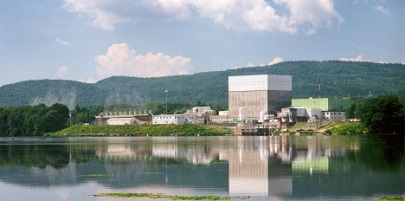
_______________________

Adams
Rod Adams is a nuclear advocate with extensive small nuclear plant operating experience. Adams is a former engineer officer, USS Von Steuben. He is the host and producer of The Atomic Show Podcast. Adams has been an ANS member since 2005. He writes about nuclear technology at his own blog, Atomic Insights.

-3 2x1.jpg)

